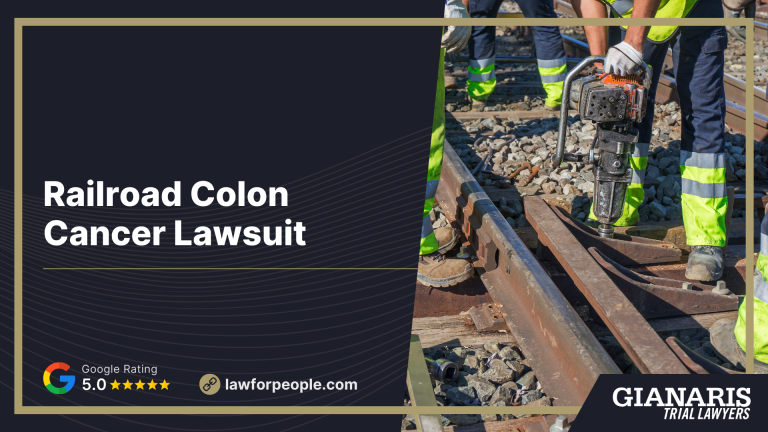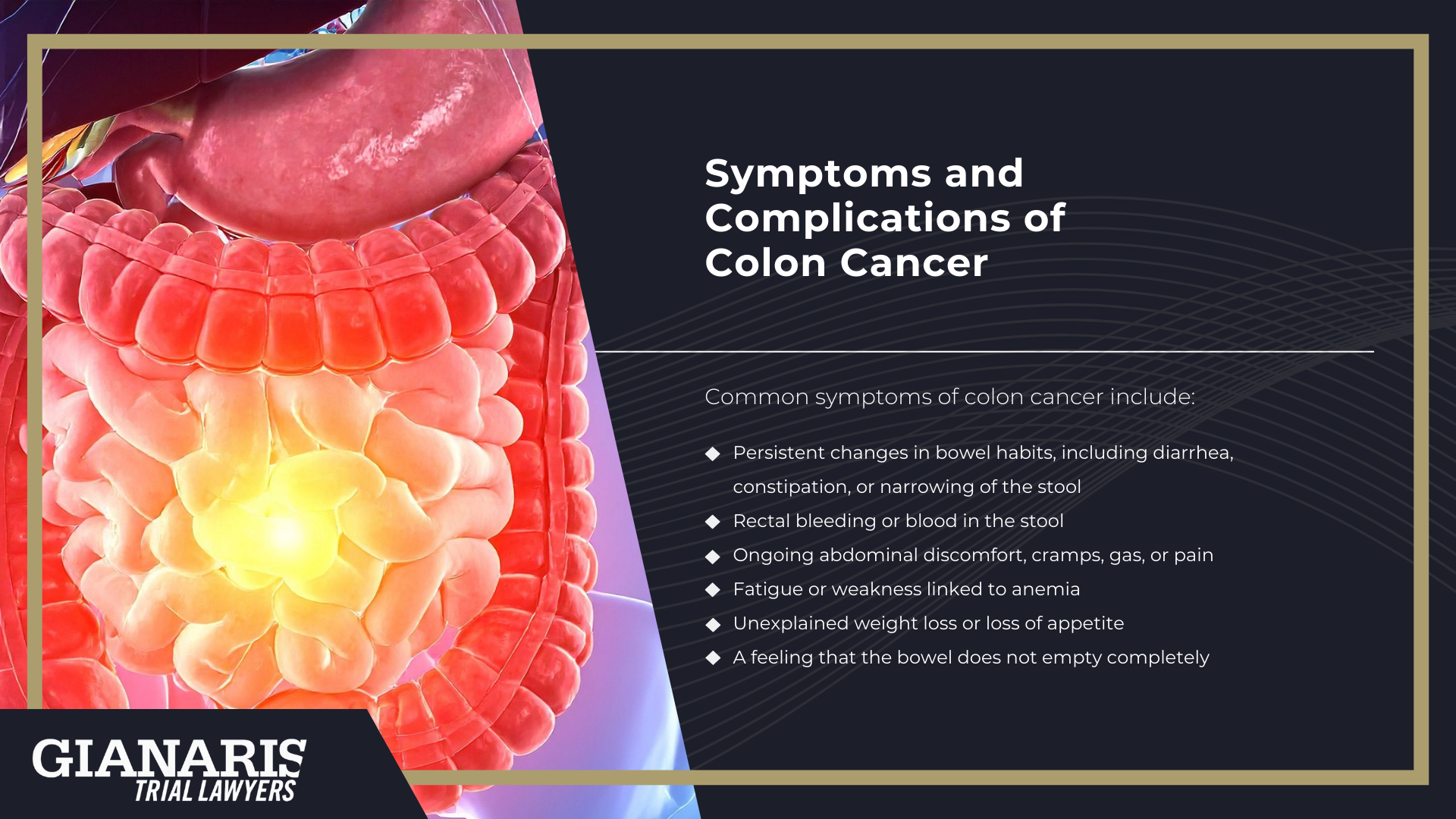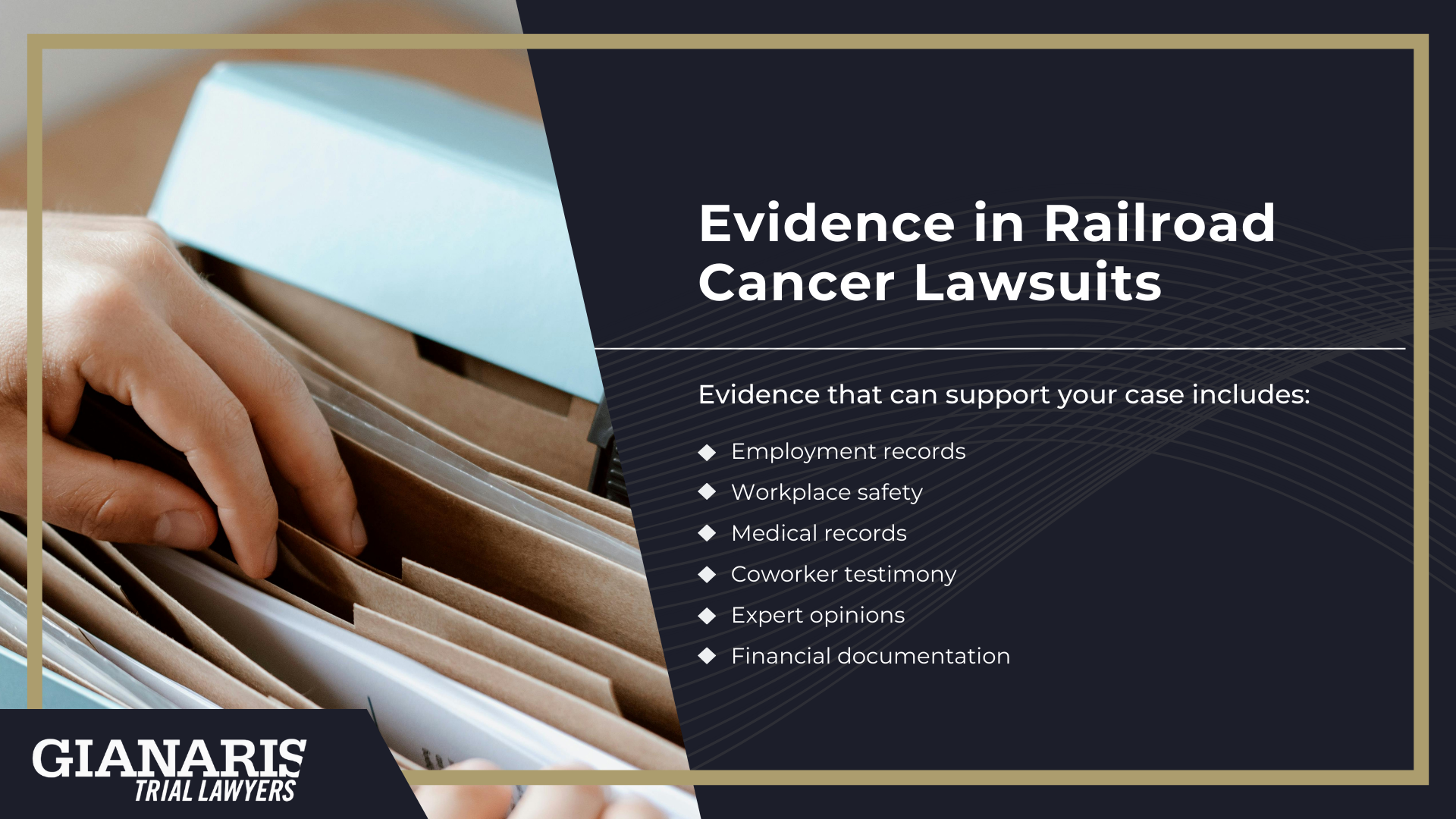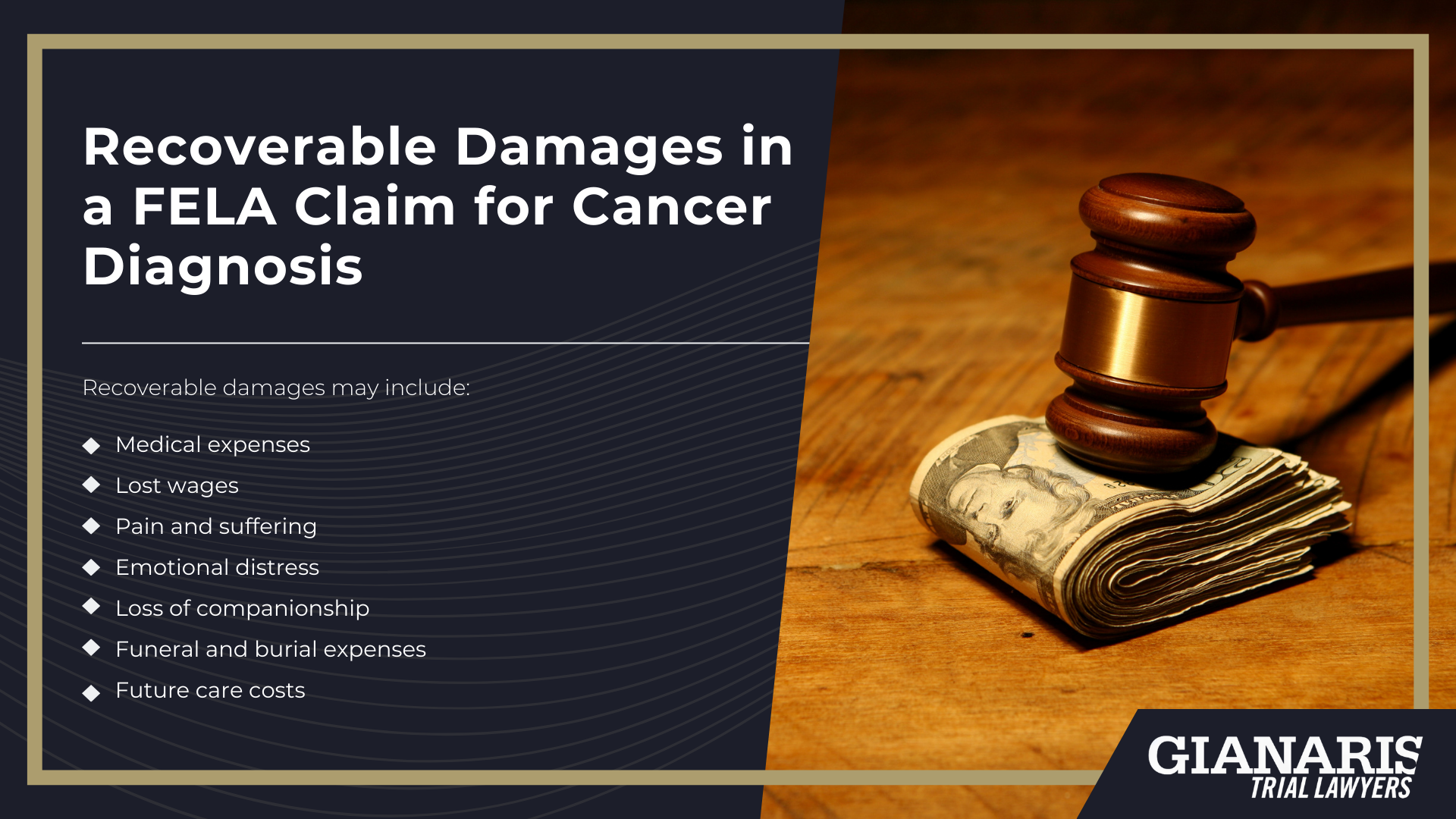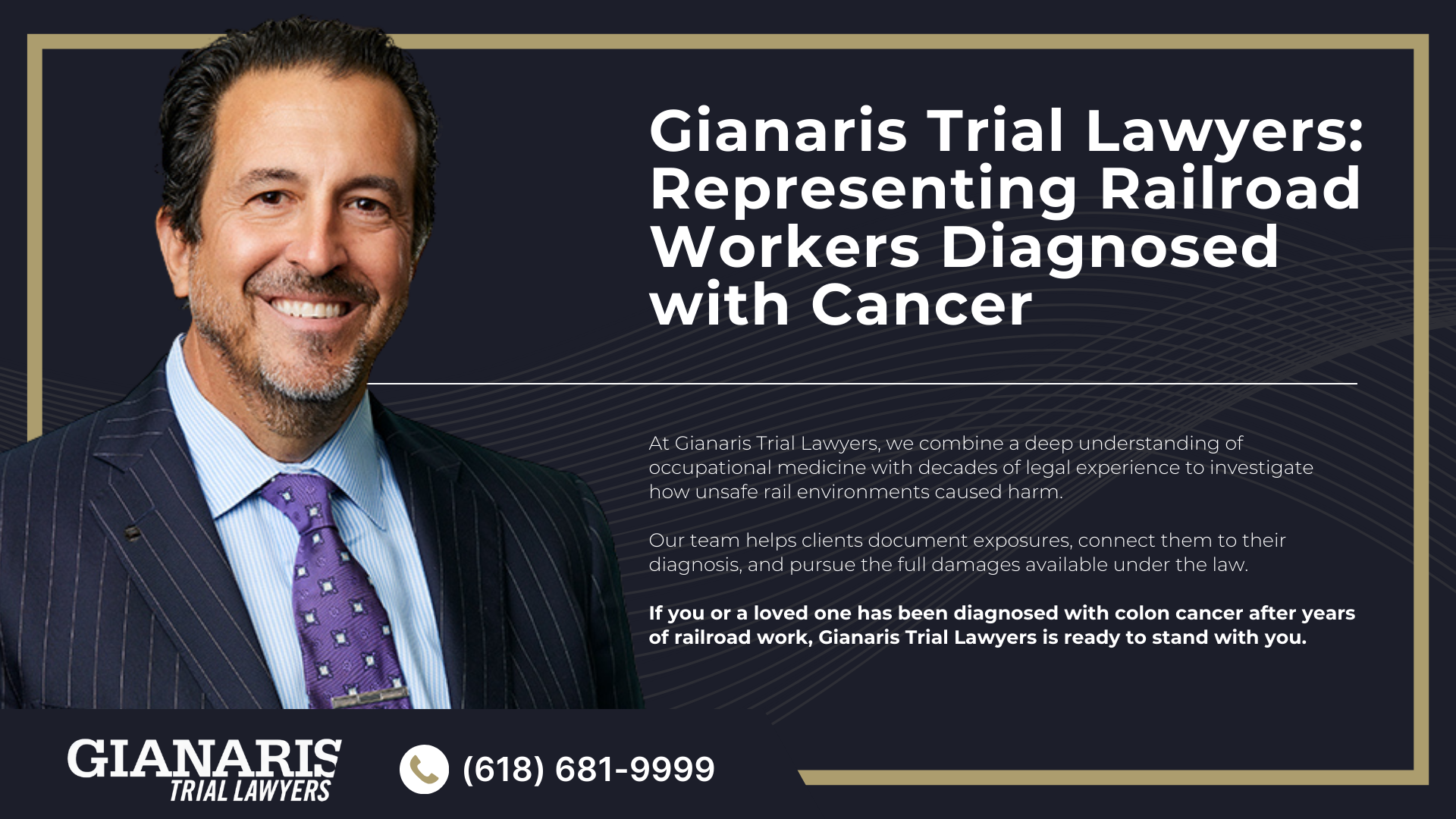For generations, men and women in railroad work were regularly exposed to toxic substances that modern science now recognizes as carcinogens.
These exposures occurred daily in locomotive cabs filled with diesel exhaust, in repair shops where solvents and degreasers were used without ventilation, and along the tracks where workers handled creosote-treated railroad ties and herbicides.
Research shows that significant exposure to these chemicals can damage cells in the digestive tract, creating an increased cancer risk for the colon and rectum.
The work environment often made matters worse, as employees were confined to enclosed spaces or spent long shifts outdoors in areas with concentrated fumes and dust.
Railroad work has always been physically demanding, but the invisible danger came from breathing toxic air, absorbing chemicals through the skin, and swallowing particles that entered the digestive system.
The Occupational Safety and Health Administration (OSHA) has long recognized the hazards of diesel exhaust, asbestos, and solvents, requiring strict monitoring in modern workplaces, yet for decades railroad companies failed to implement adequate protections or warn workers of these dangers.
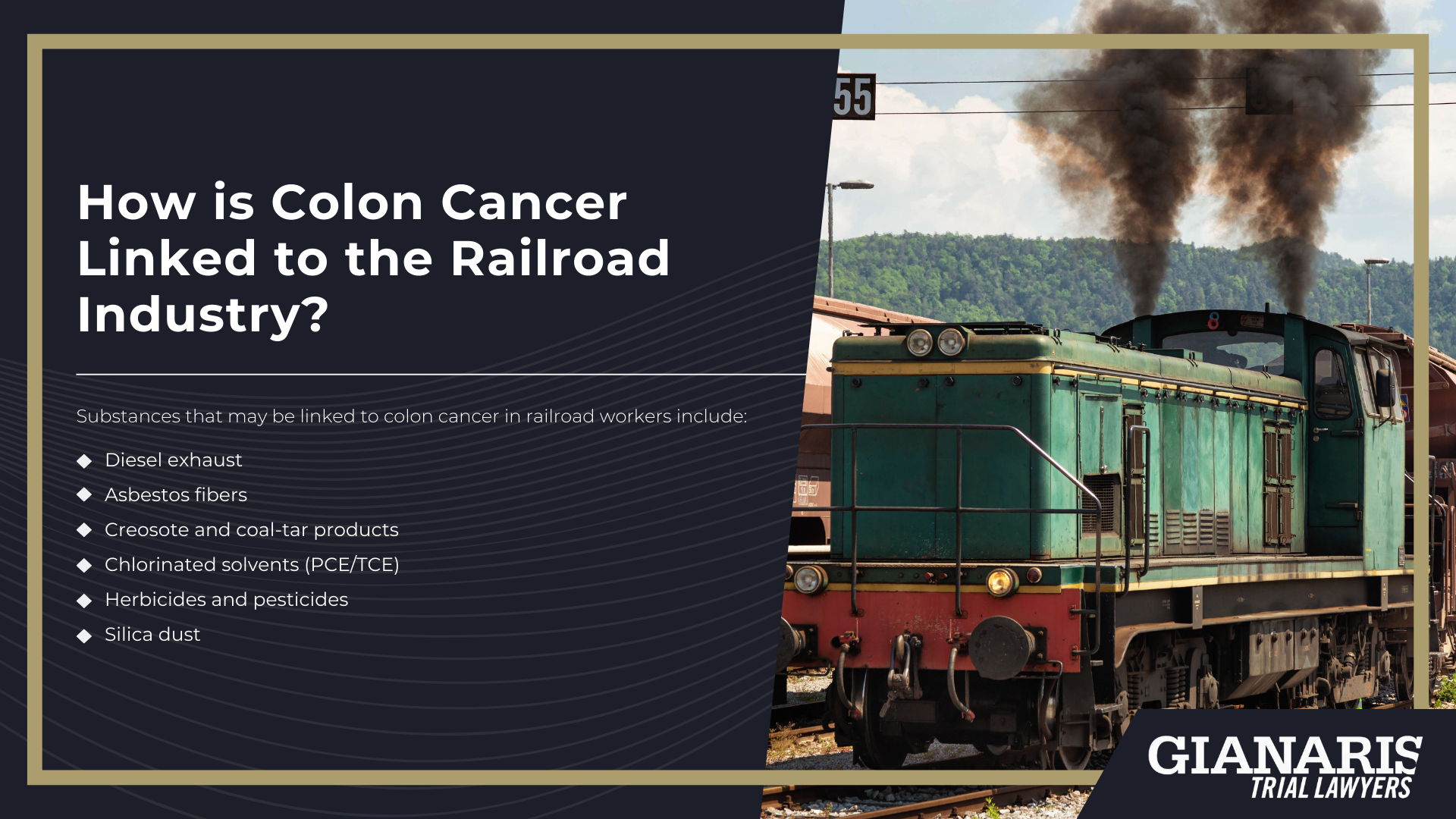
Substances that may be linked to colon cancer in railroad workers include:
- Diesel exhaust: Contains polycyclic aromatic hydrocarbons (PAHs), nitro-PAHs, and benzene; meta-analyses have linked long-term exposure to diesel exhaust fumes to higher rates of colon and rectal cancer.
- Asbestos fibers: Historically present in brake pads, asbestos insulation, and shop materials; studies show a modest but statistically significant link between asbestos exposure and colorectal cancer, especially with high doses.
- Creosote and coal-tar products: Used to preserve railroad ties and bridge timbers; contain PAHs that can form DNA adducts in gastrointestinal tissue, contributing to colorectal carcinogenesis.
- Chlorinated solvents (PCE/TCE): Used as degreasers and cleaners in rail shops; while evidence for colon cancer is mixed, high-level exposure has been associated with gastrointestinal risks in some worker populations.
- Herbicides and pesticides: Applied along rail lines for vegetation control; agricultural studies suggest associations with colon and rectal cancer, providing plausibility when rail workers used similar agents.
- Silica dust: Generated during ballast work and track grinding; chronic inhalation and ingestion of silica particles has been connected to gastrointestinal inflammation and elevated cancer risks.
These toxic substances reflect the everyday work environment faced by railroad employees, where exposures occurred as part of routine duties.
Unlike one-time accidents, colon cancer develops slowly after years of cumulative chemical contact.
The evidence makes clear that railroad workers were placed at a preventable disadvantage by companies that ignored available safety standards.
By linking these exposures to modern medical diagnoses, workers and families can demonstrate how occupational hazards directly contributed to life-altering illnesses.
Scientific Research on Colon Cancer Due to Occupational Exposure
Research connecting railroad work to colon cancer diagnoses centers on long-term contact with diesel engine exhaust (DEE), asbestos, PAH-rich creosote/coal tar, selected solvents, and right-of-way herbicides, agents common in rail environments.
The strongest occupational signal for colorectal sites comes from recent pooled analyses of diesel exposure, which, while modest in magnitude, consistently show elevated risks for colon and rectal cancer in workers chronically around diesel fumes.
Evidence for asbestos shows a small but statistically significant excess of colorectal cancer, particularly in higher-dose cohorts, relevant to legacy rail insulation and track maintenance, brake, and shop tasks.
PAHs from creosote-treated ties and coal-tar products carry biologic plausibility for gastrointestinal carcinogenesis; federal toxicology profiles document these mixtures and exposure pathways seen in track work.
Herbicide evidence is more heterogeneous, but several systematic reviews suggest increased colon/rectal cancer risk with sustained occupational use, applicable where vegetation control was part of rail duties.
Together, these findings support framing colon cancer as a potential occupational illness in railroad settings marked by intense, long duration exposures and occasionally hazardous short-term exposure episodes.
Studies representative of occupational exposure linked to colon cancer include:
- Occupational Medicine (2024) systematic review & meta-analysis of cohort studies on GI cancers and DEE: pooled estimates showed elevated colon and rectal cancer risks among workers with occupational diesel exposure (effects modest, but consistent across studies). Useful anchor for transportation/rail settings with chronic DEE.
- Environmental Health (2016) case–control using lifetime job histories: sustained high-level diesel emissions exposure associated with increased rectal cancer risk, reinforcing a dose/duration pattern relevant to operating crafts and yard work.
- OEM/BMJ (2019) meta-analysis (and related overviews): asbestos exposure significantly associated with colorectal cancer, with stronger effects at higher exposure proxies—relevant to historic rail insulation, brake linings, and shop settings.
- AJE (1994) meta-analysis of asbestos-exposed cohorts: early quantitative evidence of colorectal cancer excess in asbestos workers, foundational to later, larger reviews.
- ATSDR Toxicological Profile: Creosote (coal-tar mixtures): documents PAH-rich compositions, exposure routes (dermal, inhalation), and carcinogenicity evidence, mechanistic plausibility for colorectal effects where workers handled railroad ties and bridge timbers.
- Toxicology in Vitro/Reviews (2021) on dietary/ingested PAHs: PAHs undergo bioactivation and produce DNA damage in colorectal mucosa, supporting a mechanistic link between PAH-rich rail tasks and colorectal carcinogenesis.
- Environmental Pollution (2024) systematic review & meta-analysis: pesticide exposure associated with increased risk of colon and rectal cancer (heterogeneity acknowledged), relevant where right-of-way herbicides were routinely applied.
- ICNS summary of 2024 meta-analysis: concludes herbicides/insecticides increase colon and rectal cancer risk, while noting varying exposure assessment methods (interpret alongside rail product histories).
Operating crews, yard workers, and shop crafts were routinely around diesel engine exhaust (a complex aerosol containing PAHs and benzene) often for entire shifts and over many years; these conditions align with the meta-analytic colorectal findings on DEE.
Track and bridge work brought frequent contact with creosote-treated materials (PAHs) and dusts, while maintenance shops added solvent and asbestos co-exposures, other dangerous substances that strengthen a cumulative-dose narrative.
Vegetation control introduced herbicide exposures that literature associates with colon/rectal cancer, particularly when used repeatedly over seasons.
In building a causation case, emphasize chronic intensity (hours/shift), duration (years), and controls history; document short-term exposure spikes (e.g., enclosed-cab idling, hot-weather tie replacement) that increased dose.
Railroad Workers at Increased Risk of Toxic Exposures Linked to Colon Cancer
Not all railroad jobs carried the same level of chemical hazards, but many positions required daily contact with fuels, solvents, or creosote-treated materials that increased cancer risk.
Workers in shops, yards, and on the tracks were often exposed to multiple carcinogens at once, compounding their long-term health risks.
Shop workers were especially vulnerable, as they routinely handled degreasers, welding fumes, and asbestos-containing parts in poorly ventilated spaces.
Others spent long shifts around locomotives, breathing in diesel exhaust and fuel vapors.
Over time, these jobs created patterns of significant toxic exposure that contributed to colon cancer and other occupational illnesses.
Railroad workers most at risk include:
- Engineers and conductors confined to locomotive cabs filled with diesel exhaust and fumes
- Machinists worked with solvents, degreasers, and lubricants that often contained benzene and other toxins
- Sheet metal workers cut, welded, and fabricated components while inhaling hazardous metal fumes and solvents
- Car repairmen regularly applied adhesives, paints, and cleaners in enclosed shop environments
- Track maintenance crews exposed to creosote-treated railroad ties, silica dust, and herbicides used along tracks
- Yard workers and switchmen surrounded by idling locomotives and constant diesel exhaust in switching yards
- Pipefitters and boilermakers dealt with insulation, cleaning agents, and high-temperature fumes in repair shops
For many of these roles, repeated exposure over years or decades created conditions where workers were far more likely to face colon cancer diagnoses later in life.
The risks were not limited to a single chemical but arose from layers of toxic exposure in day-to-day duties.
Railroad companies often failed to provide protective equipment or enforce safety measures, leaving employees vulnerable to illnesses that should have been prevented.
Under the Federal Employers Liability Act (FELA), workers and families can pursue claims showing how unsafe work environments and cumulative exposures directly contributed to the development of colon cancer.
Can I File a Wrongful Death Lawsuit if My Loved One Passed Away of Colon Cancer?
Yes, surviving family members may be able to bring a wrongful death claim if a loved one’s colon cancer can be traced back to workplace exposures in the railroad industry.
These claims recognize that prolonged contact with diesel exhaust, asbestos, solvents, and other carcinogens may have played a role in causing cancer after years on the job.
Even if the worker’s employment status changed (whether retired, laid off, or no longer active at the time of diagnosis) legal rights to pursue a claim may still exist.
A wrongful death lawsuit also takes into account how the illness shortened a worker’s life expectancy, cutting short years that could have been spent with loved ones.
Families can seek damages for lost wages, medical expenses, and emotional loss, reflecting the reality of what the worker would have contributed had they lived longer.
These lawsuits are not just about compensation; they are also about accountability for railroad companies that failed to protect their employees.
Courts recognize that family deserve justice when preventable hazards played a role in cancer development.
By filing under the Federal Employers Liability Act (FELA), families can pursue both financial recovery and acknowledgment of the harm suffered.

